A formidable project, generous, so profoundly human I cannot help but join
Yasmina Khadra, Algerian novelistAn extremely interesting project and particularly original for its focus on culture
Sâad Khiari, French-Algerian filmmaker and writerA praiseworthy initiative, courageous and necessary
Mahi Binebine, Moroccan novelistI am completely backing this initiative. It is an accurate depiction of the current situation, put into words
Nabil Ayouch, Moroccan filmmaker
Religious extremism has struck again. Today, no country is protected from this evil threat that openly declares war on culture and kills thousands of civilians everywhere.
In 2001, the magnificent Bamyan’s Buddah sculptures were destroyed by “Taliban”, and more recently we have witnessed the destruction of Iraq’s ancient Mesopotamian heritage, as well as the targeting of Bardo’s museum in Tunisia by the barbaric forces of our day.
The entire world realizes that it must urgently address the challenge that these extremists pose, yet it does not know what to do and how to do it. We believe that half the solution to any problem lies in comprehending its different angles. Thus it is important that we, as people of this world, understand the manifestations of this current phenomenon, as well as its root causes. This will, in turn, allow us to see that security measures alone are never going to be enough to fight terrorism, and that to curb the tide of violence, we need to combat its thinking : here lies the other half of solution.
We need to reinvigorate the power of culture, which terrorists have been working tirelessly to remove from the equation, because they understand full well that their existence and that of culture are mutually exclusive.
For over a century, the Arab world has been undergoing a series of calamitous identity crises as different ideologies ranging from Pan-Arabism to nationalism took the reins of power and, for several reasons, failed to deliver on their promises. The initiatives of modernization, fundamentally based on assimilation to western customs, caused a kind of chronic uprooting of the Arab identity. Extremists seized the moment and took advantage of these crises by promising to recreate the glorious Arab and Muslim society from the time of the prophet.
The willingness of the extremists to completely wipe out a country’s ancient cultural heritage under a false religious justification, as was the case in Iraq, shows how far these criminals are willing to go to indoctrinate populations to their distorted form of Islam. It is important to note that during the years when Islam was spreading in the east, and where killing and destruction in the name of religion or any other ideology was perfectly normal, Muslim fighters did not destroy the Assyrian heritage in Iraq, nor the pyramids of Egypt, nor the Phoenician heritage, nor the Berber heritage. Otherwise, we would not see them today. The west remains confused as to the root causes of this phenomenon, the likes of which the world has not seen for over a thousand years, thus as Averroes once said:
Ignorance leads to fear, fear leads to hate and hate leads to violence…This is the equation.
Averroès
Some Western movements have greatly exacerbated the situation because they chose to look solely at extremist groups that effectively represent an extremely small minority in the Arab world. Thus, the Arab identity is practically associated with extremism, which has contributed greatly to shaping the way the majority of the western population views Arabs.
Furthermore, for Arabs, this Western vision effectively reinforces what the extremists have been preaching, in that it relegates the Arab to her/his religious identity, thus eliminating common Arab history and culture from the Arab consciousness which contributes to the long-term transformation of the Arab conception of him/herself. Western anger also tends to take the shortcut of demonizing Islam as a whole, which empties the religion of its spiritual and mystic substance, while neglecting the need to understand the dynamic that these currents of extremism operate in, and the way they use religion as a Trojan horse to serve their hegemonic goals.
It is apparent that Muslims have fallen victim to the excessive politicization of their religion by ISIS, which has institutionalized religious extremism, and an angry West that looks solely at the security aspect of the problem. This has created an environment where extremist terrorism is countered by western retaliation, thus escalating the problem, all while the average Arab and Muslim remains helpless in this cycle.
It is thus evident that violence is taking precedence over reason (Ijtihad), the philosophy of closed-mindedness is taking precedence over the philosophy of acceptance and flexibility, and the machine of destruction is effectively wiping out the arts, so much so that extremists have made an art of destroying the artistic history of the world, which the lands of Mesopotamia and Syria have witnessed firsthand.
We believe wholeheartedly that answering violence with violence is never the right solution, and that the best way of defeating terrorist thinking must be cultural. Thus, it is our contention that the reinvigoration of the power of culture is the solution to these barbaric actions.
In this context, we are announcing a project called “Onorientour” that entails a rihla رحلة (which means both a physical and existential journey) of 6 months in the lands of the Maghreb and the Mashreq (Middle East) by 4 travelers. The journey aims to shed light on innovators of all kinds who are reigniting the spark of life and creativity in the Arab world, and who represent the future of this region. This project will attempt to rehabilitate and rejuvenate the collective memory of this part of the world, with the goal of creating a new interpretation of the rich and complex identity of the countries that make up the Mashreq and Maghreb.
Onorientour represents an immersion in the heart of the Arab cultural scene where creativity is at its best. It is a quest to bring into focus the creativity of a region that has a thousand and one stories to tell us. This project will not adopt an orientalist vision towards these countries and will be respectful of their local cultures in an attempt to know more about these tormented societies.
Our project is dedicated to discovering creative contemporary cultural productions, through which personal and societal views and preferences on several subjects can be elucidated. We want to delve into and break down the views of each society on matters such as tradition, relations with the body and its significance, the role of religion, frustrations with the West, etc.
Our rihla رحلة will allow us to appreciate popular art which emanates from deep within societies and which often expresses anger and frustration. This anger has been the subject of significant media coverage since the aftermath of the “Arab Spring,” however few have concentrated on its creative dimensions and its evolution. Popular art in these societies utilizes different media to express societal emotions of anger and of love, yet it has faced obstacles in its attempt to cross borders and spread its message to the rest of the world. Our tour will attempt to give Arab popular artists a platform to reach western audiences, which in turn will help foster a better understanding between societies.
We are embarking on this project because we fully believe that the artistic creativity of the region is an extremely important factor in understanding the cultural richness of these societies as well as the challenges that they face. Thus, we are five travelers embarking on this journey, on a quest to meet those who through their individual innovative expression, keep the artistic heart of the Arab world beating. This project also seeks to quench the thirst that many people around the world have for the history of this vast and diverse area that never ceases to amaze its visitors with its culture, traditions and wisdom.
In sum, we are convinced that the best response to the current crisis of the Arab world lies in cultural resistance, which symbolizes a torch of light that our generation can hand to the generations that follow in order to illuminate their path.
Co-written by Oumayma Ajarrai, Hajar Chokairi et Ghita Chilla
Translated by Omer Kassim

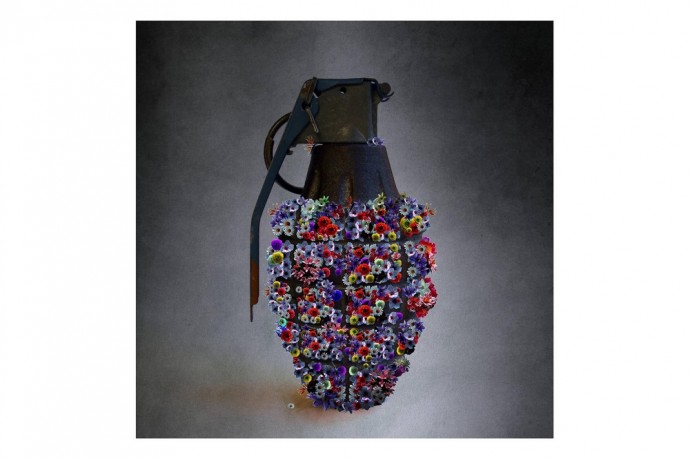
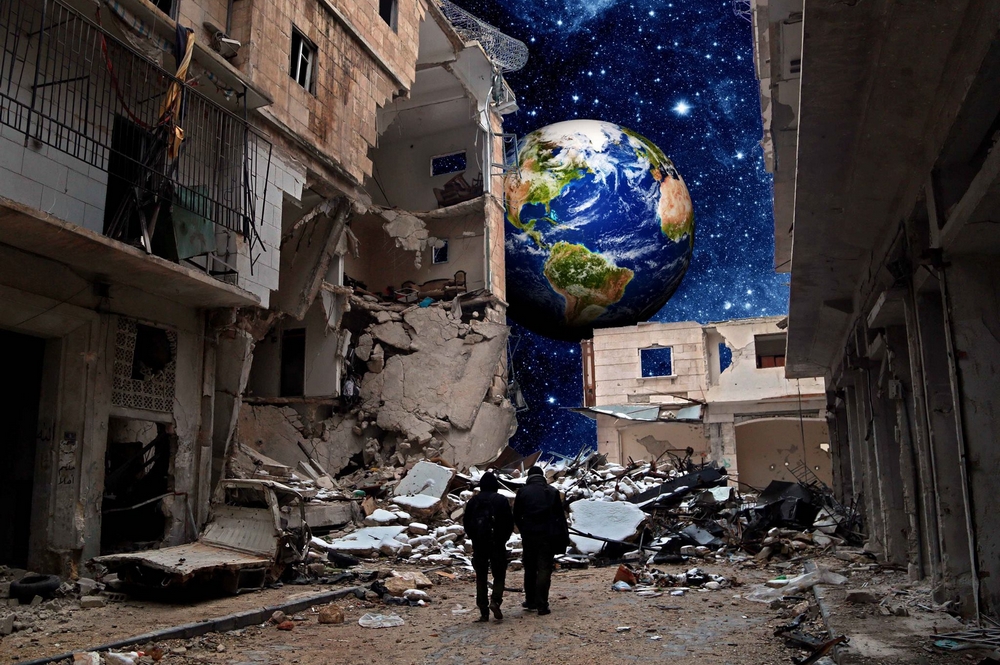

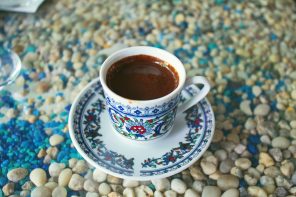
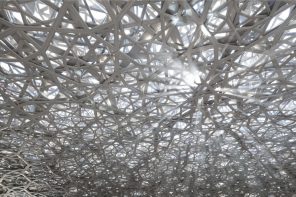

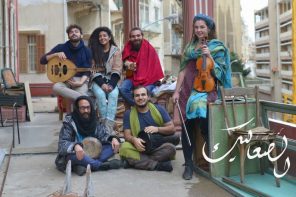
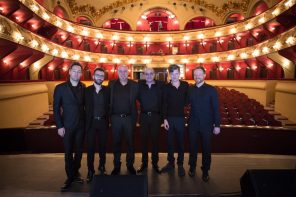
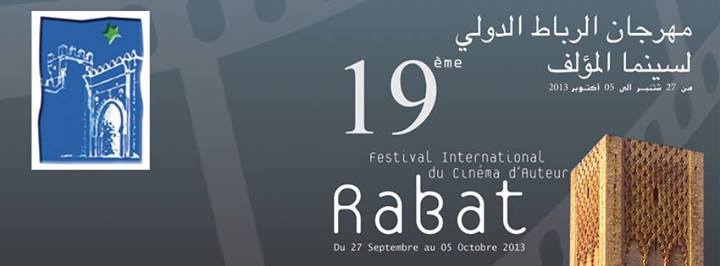
hermoso, beautiful. looking forward to reading more about onorientour.